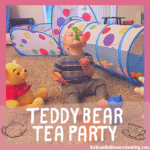(This post contains affiliate links.)

My son is just shy of three, but the past few months, I’ve spent a lot of time thinking about the things I’m going to teach him and say to him when he’s in middle school. By then, 2020 will be in history books, and our kids will ask us to tell them all the things they can’t remember, all the things the textbooks leave out from this heavy chapter in our lives. I think he’ll ask me if I protested… or if he did. I think he’ll want to know what actions we took to support the people in our community who need it most and to create real change for their futures.
One of the powerful effects of the Black Lives Matter movement is that more and more parents and educators are wondering how they can actively support and promote social justice values in their children. We’re thinking about the ways that we may have unintentionally become complacent about our roles in ensuring the next generation will be more fired up about dismantling oppression than any generation that has come before them. I think we as parents and teachers have the power to create human beings who do amazing things for their communities.
In graduate school, I worked as a teaching assistant for several Sociology & Women’s Studies classes, including one titled “Gender and Education” even though it focused on ALL types of oppression in education. I’m dedicated as a homeschool teacher, a mama, and a human being to ensure that my child advocates for love and social justice throughout his life.
Do you feel the same way but have no clue how to translate that passion into concrete teaching and parenting ideas? Here are some of my favorite books that helped me learn the skills for educating children about social justice:
1. Rethinking Early Childhood Education, edited by Ann Pelo
Rethinking Early Childhood Education was the first book I read when I decided to homeschool. Rethinking Schools is a phenomenal progressive magazine dedicated to social justice teaching. This book, published by Rethinking Schools, is a giant collection of essays and articles focused on social justice teaching for preschool, kindergarten, and elementary school students. I cried while reading most of these beautiful stories.
Ultimately, in addition to giving you a myriad of ideas for teaching your own kids, you will walk away from this book with the assurance that children are born understanding love and equality… and we have the vital job of fostering that innate spirit so that nothing in the world can take it away.

2. Still Failing at Fairness, by David Sadker

Still Failing at Fairness is the best book to read if you want to understand gender bias in education. How has society trained us as parents and teachers to treat girls and boys differently? What impact does that have on them? How can we become more aware of our gender bias and change?
After reading this, you’ll start to notice the subtle ways your older kids’ teachers have different behavior and expectations for girls and boys in their class. You’ll even notice some of the ways that you also might subconsciously treat your daughters and sons differently. All of this subtle difference in how kids are treated ultimately does a disservice to both girls and boys, and this book definitely gave me specific ways to pay attention to my bias and start working on it.
3. Teaching to Transgress, by bell hooks

Teaching to Transgress is the first in a three part series by renowned professor, cultural critic, and writer, bell hooks. In the first book, hooks describes a re-imagining of education as a way to teach students to “transgress” against oppressive systems. The second book, Teaching Community, centers on how we can teach social justice beyond just in a classroom, instead finding ways to weave our lessons on racism, sexism, classism, and other forms of oppression into daily life. The third book, Teaching Critical Thinking, is a collection of essays answering all the most common questions hooks heard from readers of the first two books, questions about social justice and self-esteem, how to handle student tears in the classroom, and how to inspire children to fight patriarchy. If you’ve never read anything by bell hooks, you’re in for a transformative experience. She is one of my favorite feminist thinkers and a truly powerful author.
4. Teaching for Joy and Justice, by Linda Christensen
Teaching for Joy and Justice is another incredible book published by Rethinking Schools. It focuses on social justice teaching in Language Arts class (Linda Christensen, the author, taught Language Arts for 30 years), but so much of the wisdom can be applied to how we teach children in all settings. I love her specific lesson plans for writing exercises that honor and affirm the social identity of each child. Hearing the stories from her own classroom is so inspiring!

5. Delusions of Gender: How our Minds, Society, and Neurosexism Create Difference, by Cordelia Fine

I first read Delusions of Gender in a “Psychology of Gender” course. How often have you heard that girls are better at English and boys are better at math? Or that boys just naturally have more energy than girls and are more rowdy, and that’s why they have a harder time focusing in school?
Everyone says these things (and more) as if they’re facts, but who among us has read the actual research studies? This brilliant and often hilarious book analyzes all the actual research related to these stereotypes. You’ll be shocked at how misinterpreted, misrepresented, and sometimes even completely fabricated the results of these studies become when they’re told to us as Truths.
6. Teaching for Diversity and Social Justice, edited by Maurianne Adams, Lee Anne Bell, and Pat Griffin
Clearly, I love a good anthology! (And this one is huge.) Teaching for Diversity and Social Justice is a giant collection of essays that gives you concrete curriculum design ideas (which can, of course, be adapted for homeschooling) on everything social justice related. Want some ideas for designing a curriculum on white privilege? They have it. Not sure how to teach ableism? It’s all here.
This book has a companion book called Readings for Diversity and Social Justice that also had a huge impact on my life. While the “Teaching” version gives you specific curriculum ideas, the “Readings” book is a collection of essays on every type of oppression (including some that may be new to you like adultism). I think that if we’re going to have the biggest impact we can on our children, we have to look for ways that we too can grow and expand our understanding of oppression and social justice. If you’re passionate about social change but have ever felt apprehensive about social justice teaching because you don’t feel like enough of an “expert,” this book will give you the knowledge to teach with confidence.

What other social justice teaching books should be on this list? Comment and let me know!



